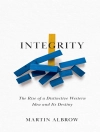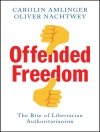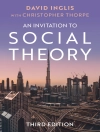Over-consumption is one of the key issues of our time, especially in the Western world. Over the past decade, in the face of historically unprecedented levels of consumer spending in the West — and the more recent impact of recession — a vigorous politics of anti-consumerism has emerged in a range of wealthy nations.
This timely and original new book provides a comprehensive overview and analysis of what has come to be called the ‘new politics of consumption’; a politics embodied in movements such as culture jamming, simple living, slow food and fair trade. The book offers an examination of anti-consumerism at a time when the idea of ‘consumer excess’ is being re-framed by a global economic downturn, and crucially explores what this means for the future of political debate. Drawing on interviews with activists across three continents, and offering a refreshingly accessible discussion of contemporary commentary and theory, Kim Humphery sympathetically explores anti-consumerism as cultural interpretation, lifestyle change, and collective action.
Whilst analysing the positive advances of the anti-consumerist movement, Excess also challenges contemporary critical thinking on consumption, taking issue with the return to theories of mass culture in contemporary anti-consumerist polemic. Alternatively, Humphery begins to forge a politics of anti-consumerism that addresses the complexity of material acquisition and which avoids treating consumers as mere dupes in the logic of capitalism, viewing them instead as active participants in a culture which is capable of transformation.
Содержание
Preface vii
Acknowledgements xiv
Introduction: Trouble in Consumer Paradise 1
1 The New Politics of Consumption 15
2 Anti-Consumerism in Action 49
3 Encountering Anti-Consumerism 81
4 Interpreting Material Life 110
5 Consuming Differently 153
Postscript: After the Boom, Beyond the West 178
Notes 184
Bibliography 230
Index 254
Об авторе
Kim Humphrey, Associate Professor of History and Social Theory, RMIT University, Melbourne, Australia












